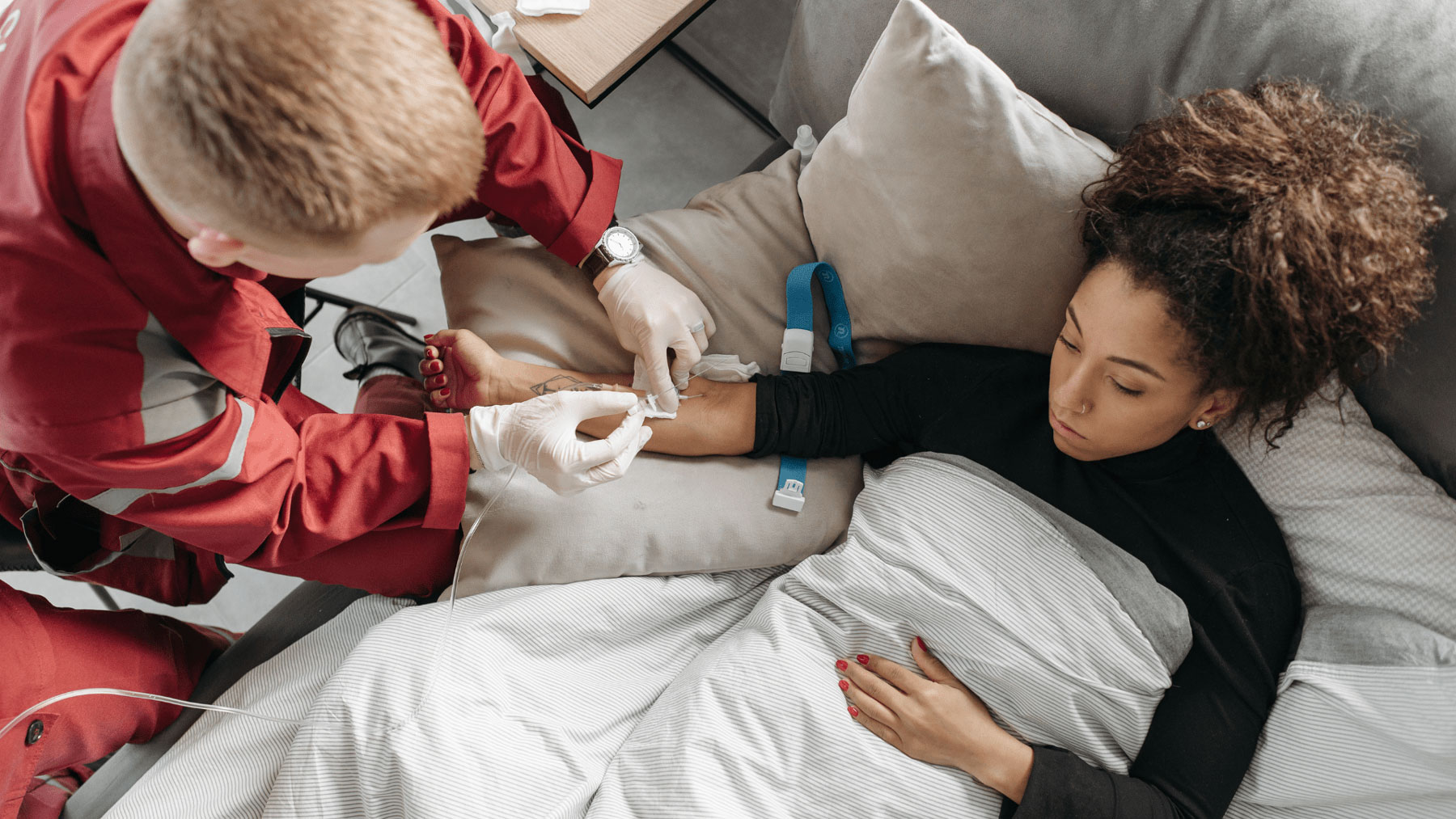Cocaine Withdrawal Symptoms, Side Effects, and Signs of Detox

- Cocaine is a highly addictive stimulant drug made from coca leaves.
- There are both short- and long-term effects when consuming cocaine, including increased heart rate, respiratory problems, mental health issues, and reproductive problems.
- Cocaine withdrawal symptoms include: depression, anxiety, fatigue, irritability, difficulty sleeping, and slowed thought processes.
- Treatment options for cocaine addiction include behavioral therapy, contingency management, medication-assisted treatment (MAT), and group therapy sessions.
Cocaine addiction can be a struggle that has long-term physical and psychological consequences.[1] The road to recovery is rarely easy, as those trying to quit often face uncomfortable withdrawal symptoms they may not have expected.
However, with the support of loved ones and professionals in healthcare roles, individuals can overcome this potentially devastating habit for good.
What is Cocaine?
Cocaine is a highly addictive stimulant drug that comes from coca leaves. Manufactured mainly in South America, this substance increases dopamine levels within the brain upon consumption to create an intense euphoria for users – often prompting them to repeat use in search of that same high.
Cocaine offers a fleeting rush of heightened energy and euphoria. However, it can quickly lead to feelings of depression and anxiety. The drug is most commonly snorted but can also be smoked or injected for an instantaneous high followed by an inevitable crash.
Cocaine use can have devastating effects – from increasing the risk of heart and respiratory ailments to promoting addiction. In addition, habits can quickly spiral out of control, leading to profound long-term implications.
What Are The Side Effects Of Cocaine Use?
Cocaine has a seemingly glamorous reputation, but its use can have long-term and life-threatening consequences. Despite the carefree facade it sometimes presents, this drug may cause serious harm to your physical health as well as mental state.
Short-Term Side Effects of Cocaine Use
The short-term effects of cocaine use can be pretty intense and include:
- Increased heart rate and blood pressure: Cocaine stimulates the central nervous system, which can cause your heart rate and blood pressure to skyrocket.
- Dilated pupils: Cocaine use can cause your pupils to dilate, leading to sensitivity to light.
- Constricted blood vessels: Cocaine can damage your circulatory system, causing blood vessels to be narrow and reducing the flow of vital oxygenated blood to essential organs.
- Headaches and dizziness: The use of cocaine can cause more than just a high – it may lead to painful headaches and extreme dizziness caused by increased blood pressure.
- Restlessness and anxiety: Cocaine can dramatically surge emotions, from restlessness and anxiety to paranoia.
Long-Term Side Effects of Cocaine Use
The long-term side effects of cocaine can be life-changing and can include:
- Cardiovascular disease: Prolonged cocaine usage can have severe consequences for your heart, such as an increased risk of life-threatening conditions like stroke or cardiac arrest.
- Respiratory problems: Cocaine can wreak havoc on your respiratory health, from irritating coughing to potentially devastating lung damage.
- Mental health issues: Cocaine can lead to dangerous mental health conditions like depression, anxiety, and paranoia. Abusing this substance drastically increases the risk of developing emotional problems that could affect users for years.
- Reproductive problems: Cocaine use can harm reproductive health in both males and females, from erectile dysfunction to infertility.
- Dependence and addiction: Even short-term use of cocaine can instigate a dangerous cycle that leads to severe, long-term dependence.
What Are Cocaine Withdrawal Symptoms?
Cocaine dependency or addiction can occur with regular use of the drug, and when an individual attempts to quit, they will likely experience withdrawal symptoms. Cocaine withdrawal can be a complicated process since it typically involves intense cravings for the drug and physical and psychological discomfort.[2]
Below is a list of the most common cocaine withdrawal symptoms:
- Restlessness
- Agitation
- Depression
- Excessive Fatigue
- Hunger
- Vivid Dreams
- Body Tremors
- Chills
- Nausea
The duration and intensity of cocaine withdrawal depend on the severity of the addiction and the length of time the person has been using the drug. The first two days after stopping cocaine use are expected to have the most intense symptoms. Symptoms begin to decline after two days, and usually, complete withdrawal and return to everyday life within 7 to 10 days.
Treatment Options for Cocaine Addiction
Battling cocaine addiction can feel like an intimidating challenge, but with the proper cocaine rehab program, and support, there is hope for reclaiming your life. Here are a few common approaches to overcoming this complex condition:
- Behavioral Therapy: This offers an empowering approach to conquering addiction. Through Cognitive-Behavioral Therapy (CBT), individuals can gain insight into negative thought patterns and equip themselves with the skills needed to confront triggers, build healthier relationships, and ultimately live a life of sobriety.[3]
- Contingency Management: This is an effective treatment to support those fighting cocaine addiction. Motivation comes from the tangible rewards that can be earned through staying abstinent. Vouchers and other incentives give people a meaningful incentive for maintaining their recovery journey, protecting them against relapse.
- Medication-Assisted Treatment (MAT): MAT offers relief from the physical symptoms of addiction by providing medications such as buprenorphine and naltrexone, which help manage cravings, ease withdrawal, and support early detoxification.
- Residential Or Outpatient Treatment: People who require more assistance during their recovery process can benefit greatly from residential treatment programs. An addiction partial hospitalization program or intensive outpatient programs (a substance abuse IOP) offer the same therapeutic services without live-in requirements.
- Self-Help Groups: Groups like Cocaine Anonymous and Narcotics Anonymous can provide peer support and a sense of community for those pursuing sober living.
Frequently Asked Questions About Cocaine and Cocaine Withdrawal Systems

